BBC News reports with far more people unable to work, or working from home, many have been inspired to explore nature in their neighbourhood as they refocus on their immediate surroundings. A wealth of studies have demonstrated the positive effects of the natural world on our mental health. Connecting with nature can help us feel happier and more energised, with an increased sense of meaning and purpose, as well as making tasks seem more manageable. [Article includes tips for experiencing nature].
All posts by Heather
Give your lawn a monthly ‘Mohican’ mow to boost wildlife, experts urge
The Express and Star reports mowing the lawn just once a month – and leaving some areas to grow long – provides a huge boost to flowers, bees and other wildlife, experts have said. The “Mohican” haircut approach to mowing is being recommended by wildlife charity Plantlife, after a citizen survey of lawns revealed they can support 200 different flowers and generate huge amounts of nectar for wildlife.
‘Not just weeds’: how rebel botanists are using graffiti to name forgotten flora
The Guardian reports pavement chalking to draw attention to wild flowers and plants in urban areas has gone viral across Europe – but UK chalkers could face legal action
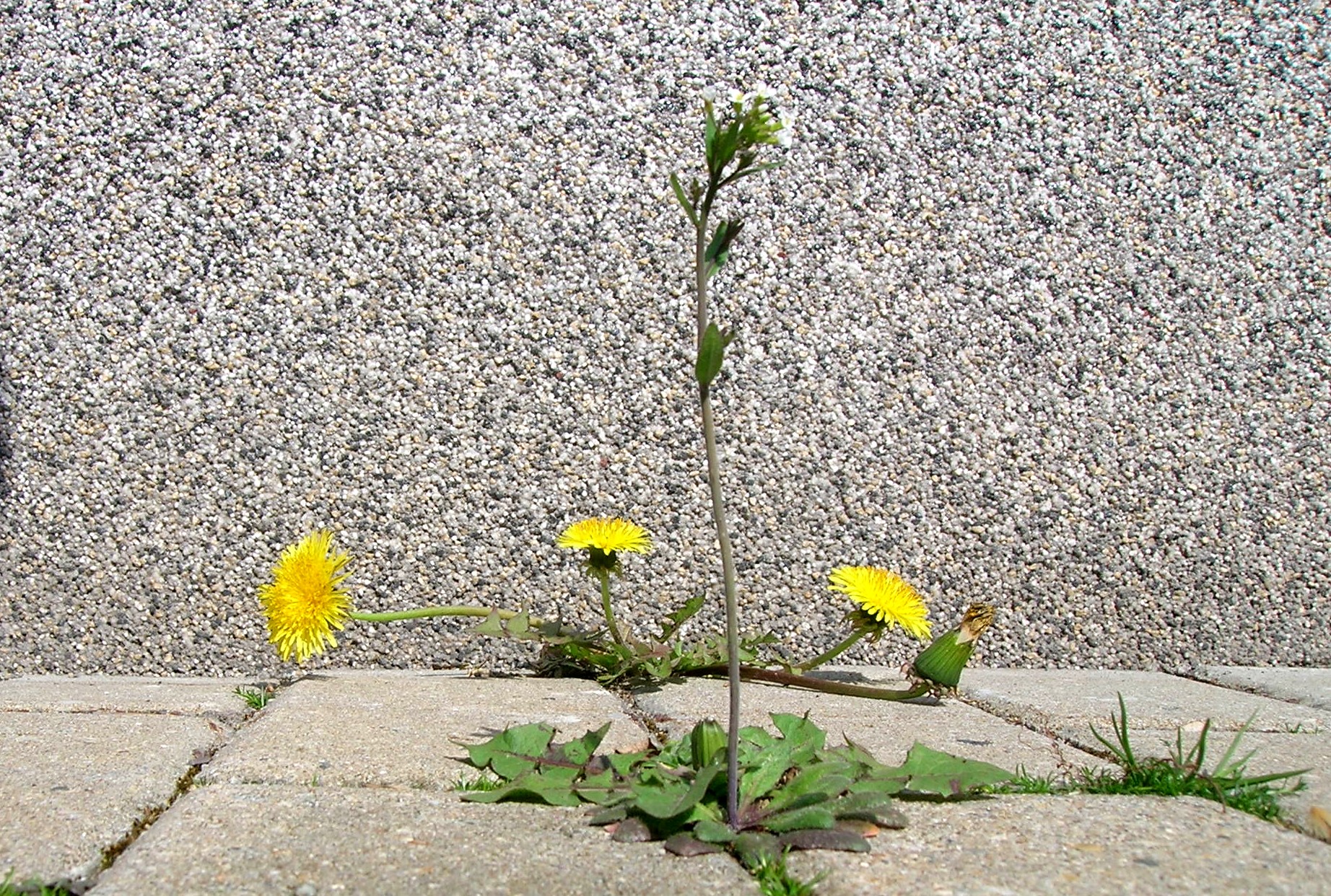 A rising international force of rebel botanists armed with chalk has taken up street graffiti to highlight the names and importance of the diverse but downtrodden flora growing in the cracks of paths and walls in towns and cities across Europe.
A rising international force of rebel botanists armed with chalk has taken up street graffiti to highlight the names and importance of the diverse but downtrodden flora growing in the cracks of paths and walls in towns and cities across Europe.
The idea of naming wild plants wherever they go – which began in France – has gone viral, with people chalking and sharing their images on social media. More than 127,000 people have liked a photo of chalked-up tree names in a London suburb, while a video of botanist Boris Presseq of Toulouse Museum of Natural History chalking up names to highlight street flowers in the French city has had 7m views.
Photo by Erich Ferdinand under creative commons.
‘The bliss of a quiet period’: lockdown is a unique chance to study the nature of cities
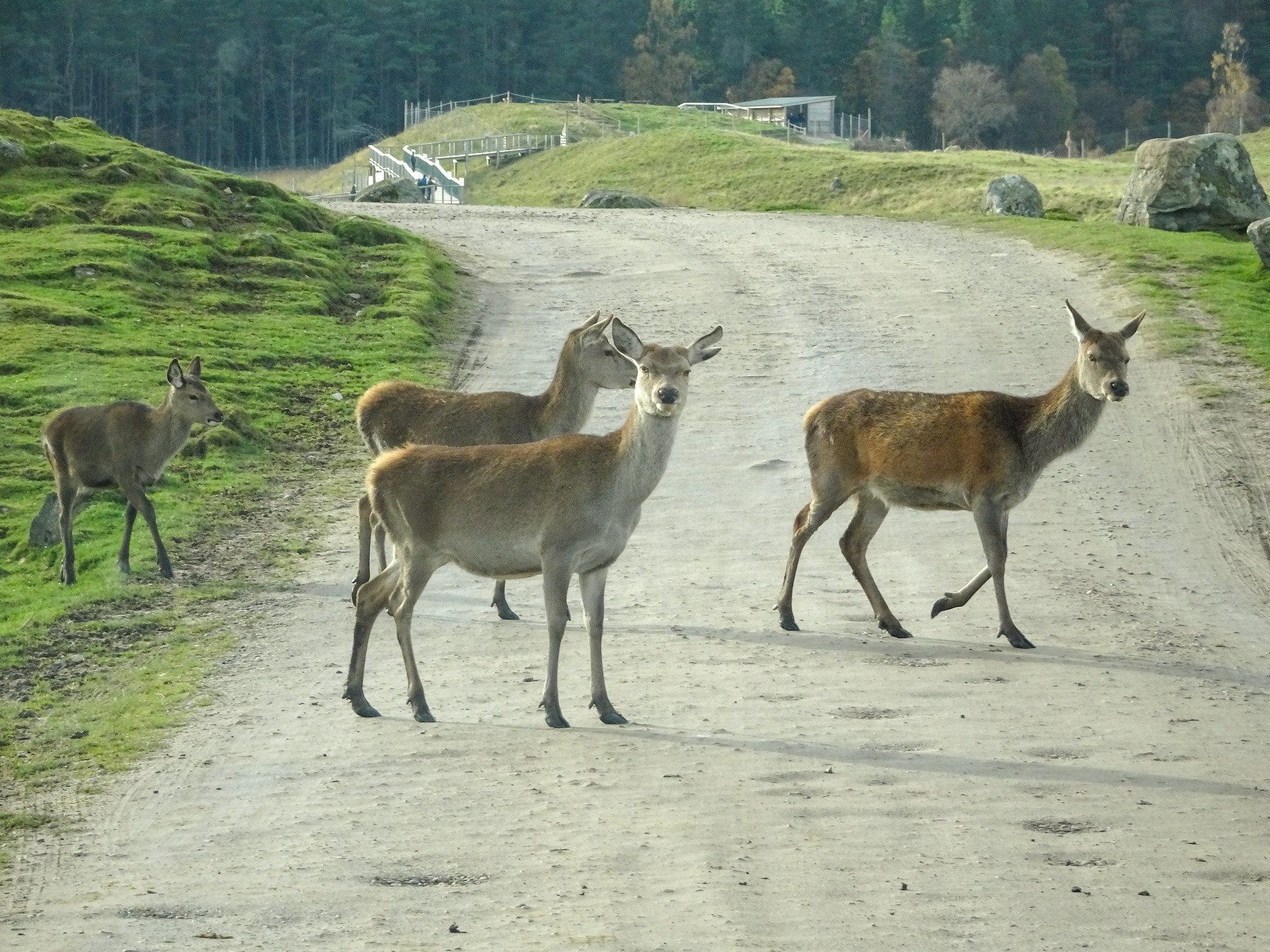 The Guardian reports on two stories about the changes we’re seeing to wildlife as a result of Covid-19 lockdown. Check out at least one of these stories if only to see the unusual, but beautiful sight in their photo of a herd of fallow deer graze on the lawns of a housing estate in east London (sorry FNW don’t have permissions to copy it here).
The Guardian reports on two stories about the changes we’re seeing to wildlife as a result of Covid-19 lockdown. Check out at least one of these stories if only to see the unusual, but beautiful sight in their photo of a herd of fallow deer graze on the lawns of a housing estate in east London (sorry FNW don’t have permissions to copy it here).
The first reports deer roam city streets and hedgehogs can safely cross roads… but a radical policy shift is needed to protect wildlife in future, say campaigners. Britain’s wildlife may be thriving during the current lockdown but its long-term future is looking bleak, according to leading conservation organisations. Nikki Williams, head of campaigns at the Wildlife Trusts, said: “The current crisis means nature is losing out, because many organisations are having to scale back important work caring for special places, which they usually do with the vital help of thousands of volunteers.”
The other reports empty streets and skies let the birds be heard and leave animals free to roam as well as allowing scientists to examine how humans change urban biodiversity.
Red deer on a road, photo by Dunnock_D under creative commons.
It’s time to rip up fake grass to save birds and bees

The Metro reports artificial grass creates a ‘desert’ and should be removed to help wildlife, experts have said. The fake turf is becoming a common sight around the UK, chosen by many because it requires little maintenance. But it is doing harm to the insects, birds and other wildlife that live here and have seen their habitat shrink.
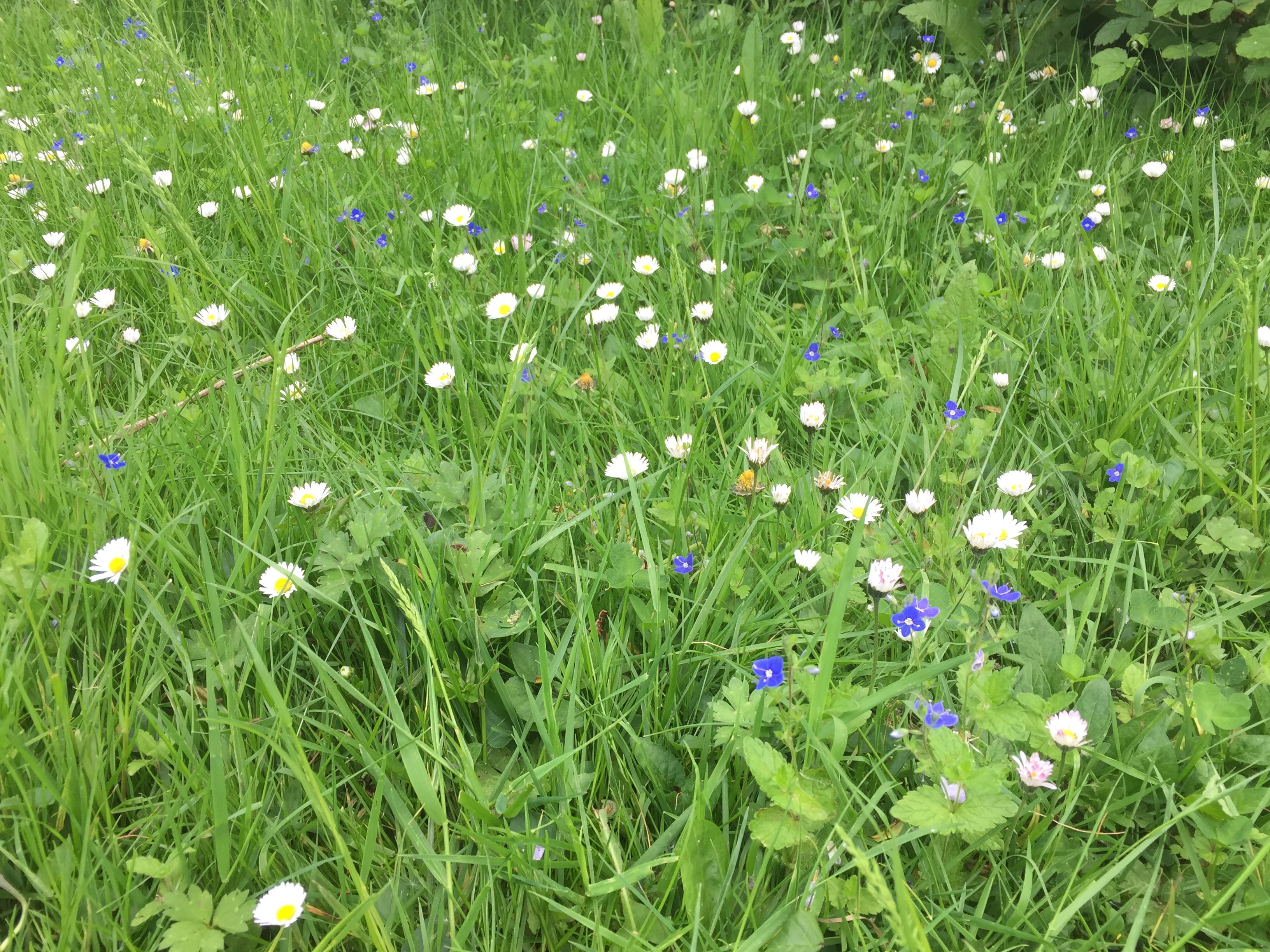
Top photo of artificial grass by Perfect Grass under creative commons. Bottom photo of natural grass in a Normandy garden.
Wildlife crime wave fears as coronavirus lockdown distracts public attention
The Mirror reports wild animals are enjoying deserted streets, beaches and the countryside as air and car traffic has fallen dramatically – but Moorland Monitors, a group which documents wildlife crimes, fears incidents are going unreported with monitoring difficult to carry out under Covid-19 restrictions.
Social distancing for trees? Ash dieback pandemic less deadly to isolated trees, study finds
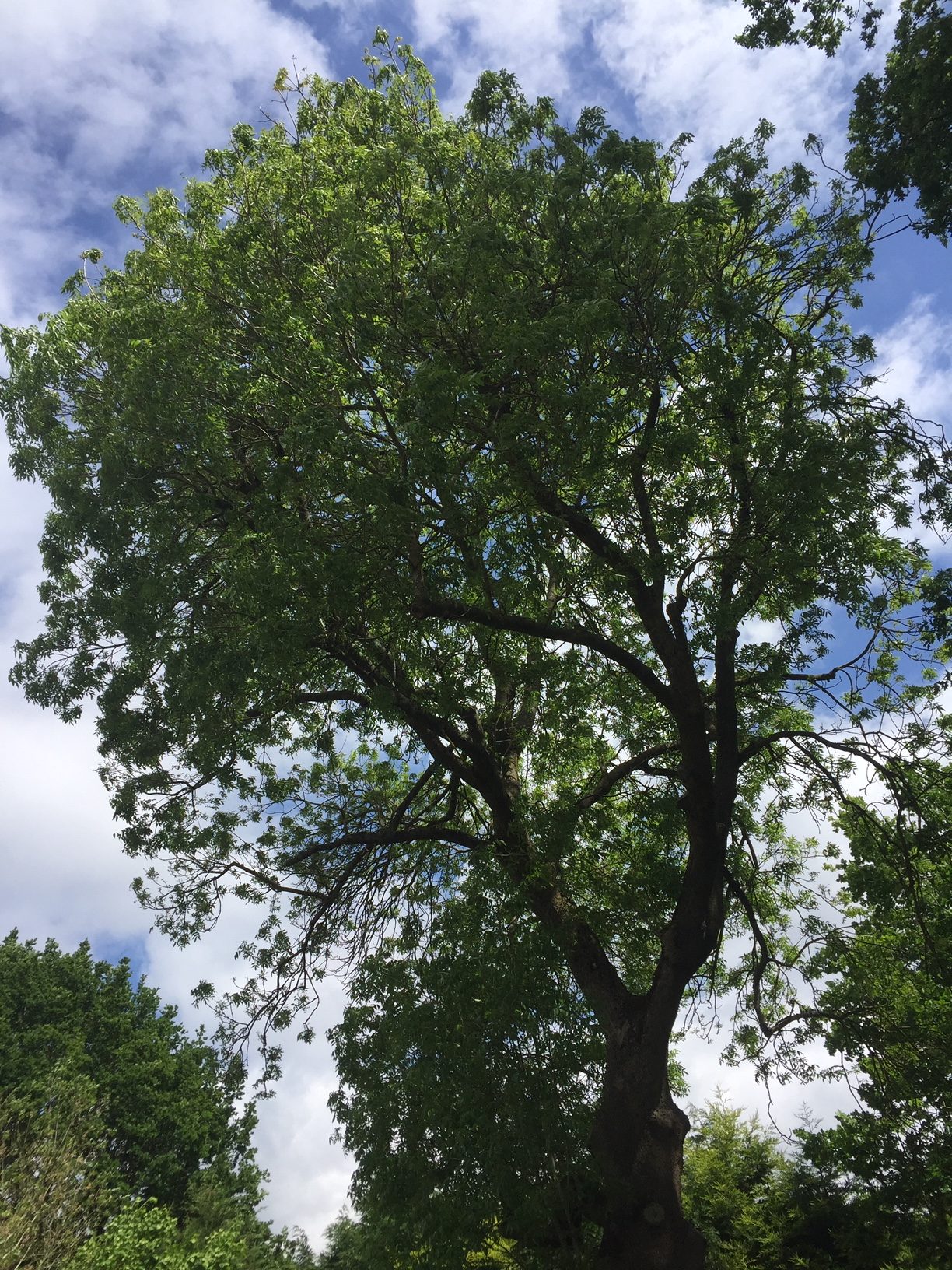 The Independent reports sparse spread in some areas and higher temperatures mean fungal disease isn’t wreaking devastation predicted for all populations of ash. The fungal disease affecting ash trees across the world has been estimated to be on course to kill 95 per cent of UK ash trees, and cost the economy up to £15bn. But a glimmer of hope has emerged for the species after new research indicates these figures may have overstated the threat.
The Independent reports sparse spread in some areas and higher temperatures mean fungal disease isn’t wreaking devastation predicted for all populations of ash. The fungal disease affecting ash trees across the world has been estimated to be on course to kill 95 per cent of UK ash trees, and cost the economy up to £15bn. But a glimmer of hope has emerged for the species after new research indicates these figures may have overstated the threat.
Lockdown leads to ‘cleaner air, more wildlife and stronger communities’
ITV News reports people are noticing cleaner air, more wildlife and stronger communities amid the coronavirus lockdown, a survey suggests. More than two-fifths (42%) of those polled said how much they value food and other essentials has changed since the pandemic and almost as many (38%) said they are cooking from scratch more. Other changes people have seen include 61% spending less money and 51% noticing cleaner air outdoors, while 27% think there is more wildlife.
All the places in Gloucestershire you can visit virtually
Gloucestershire live report you can visit a number of places in Gloucestershire virtually – with everything from museums, theatres and forests. Thanks to BBC Springwatch, you can explore the beautiful Forest of Dean right from the comfort of your own home with their soundscape. They’ve compiled a collection of sights and sounds from the forest prior to lockdown and you can scroll through the images and audio here.
Invasive grey squirrels carry a parasite that makes their native red cousins sluggish and threatens to further reduce their numbers
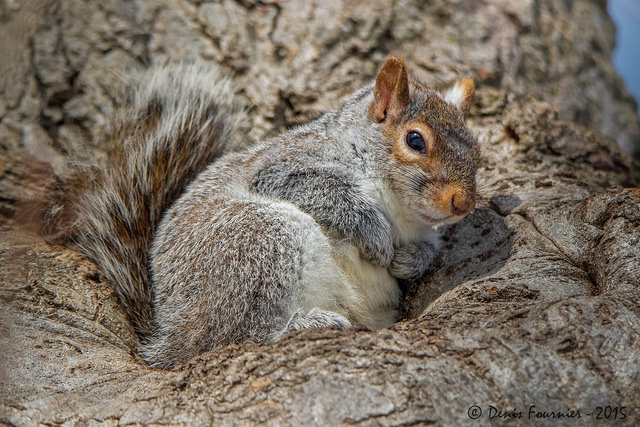 The Daily Mail reports experts from Italy and Belgium studied populations of red and grey squirrels. Grey squirrels pass parasites onto red squirrels that make them forage slowly. The presence of greys also alters the reds’ relations with their natural parasites. The team said that the pressure faced by the reds may lead to their extinction.
The Daily Mail reports experts from Italy and Belgium studied populations of red and grey squirrels. Grey squirrels pass parasites onto red squirrels that make them forage slowly. The presence of greys also alters the reds’ relations with their natural parasites. The team said that the pressure faced by the reds may lead to their extinction.
Photo by Denis Fournier under creative commons.
